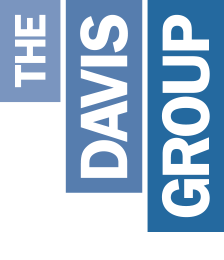One of the most important lessons of 2013 was one I’ve learned over and over again. It’s a simple lesson, but doing it can be the difference between steering clear of danger and disaster. Here it is: Know when to use the “n-word” with clients.
Yeah, I said it. The “n-word.”
Now that i’ve gotten your attention, let me put this in context.
Early summer I was contacted by a very articulate prospect about a potential business relationship on Linkedin. I responded with thanks as usual, and we spoke at length by phone about the work needed for a business idea he and his partner (a family member) had. In his initial email, he seemed very clear on his business idea and stated the budget. Without any specifics, the stated budget for the items needed was fair enough. I had the product launch, digital and strategic experience relevant to get the job done. The client was very formal, called my references and spoke at length with 3 of them. After 2 weeks of vetting, the prospect communicated to me that my details checked out and that he was ready to meet.
I hopped on the train out of the city for the 45min trek and when I got there signed an NDA. He and his business partner then took me to a pretty expensive dinner and explained the business idea. It was terrible. I asked a few questions, one of which was about the business plan. The reply was that, “the business Idea was so simple that it didn’t need one.” This is when my red flags started going off. I should have halted everything right here, and used the “n-word.” Hindsight is 20/20.
I reasoned that I could help by benchmarking the company he had based his idea on and explain why it worked for them and therefore why it wouldn’t work for him. From there, I could then give him the tools to tweak his offering and develop something original that would work. So I proposed that, wrote a proposal and ensured that he would be able to determine viability from my research. I’m always clear that I’ll make recommendations, but the client will be making the decisions. We agreed on my rate, signed the agreement, I did the research and presented it at another expensive dinner. At slide 10 of 96 during the presentation, I could read the body language but wasn’t sure it if was impatience or confusion and asked for any questions. Our small discussion revealed a bit of both. He wanted me to just tell him what to do and trusted that if I did, we could be done with the presentation. This felt a bit like trust but much more like the expectation that he had paid me to write a business plan. I assured him of the value in his understanding the viability research and the strategic tools I was presenting and continued. Something felt weird but I couldn’t put my finger on it.
It was my intention to move on having helped the client determine a lack of viability, and having given them the tools to reach viability in exchange for a fourth of the overall budget. Win win. Some time would pass before the entrepreneurs called again ready to move forward and hire me to launch their brand. In my mind, they had taken the time to incorporate and tweak their idea with the 96 slide presentation I delivered. I drew up a contract and after a month of back and fourth on details in 64 emails, (that included: what was and what was not offered in the agreement, what was and what was not a part of my expertise and even an option to have me project manage a cheaper team that wasn’t mine, which I declined) and a check, we signed on to do the project.
I completed the first milestone on the schedule of the signed agreement, a creative brief, as per the signed agreement. I was 5 minutes into the presentation, when something strange happened. The client stopped me mid-presentation and said, “Douglas, we are really disappointed in what we are seeing, we thought that we would be farther along than this.” I was blindsided. In the following conversation, I began to understand that after, vetting me, paying me for a viability study, taking three weeks before contacting me again, 65 emails to clarify the subsequent agreement over 3 weeks and a 40% deposit to start the job, these guys didn’t read the contract, recognize or understand anything that they paid me to do. After all the explaining over expensive dinners, several presentations and green lights, we were still here. All of this could have been avoided if at first sign of serious red flags, I had just used the “n-word.”
I should have simply said, “no.”
There are two morals in this lesson. 1) We have to listen to ourselves when there is internal hesitation because it is best to avoid some situations all together. And lastly, If you are 65-emails-for-clarification clear, and still have a miscommunication then 2) No has to mean no, even when you’re telling it to yourself.
Happy New Year
2014


